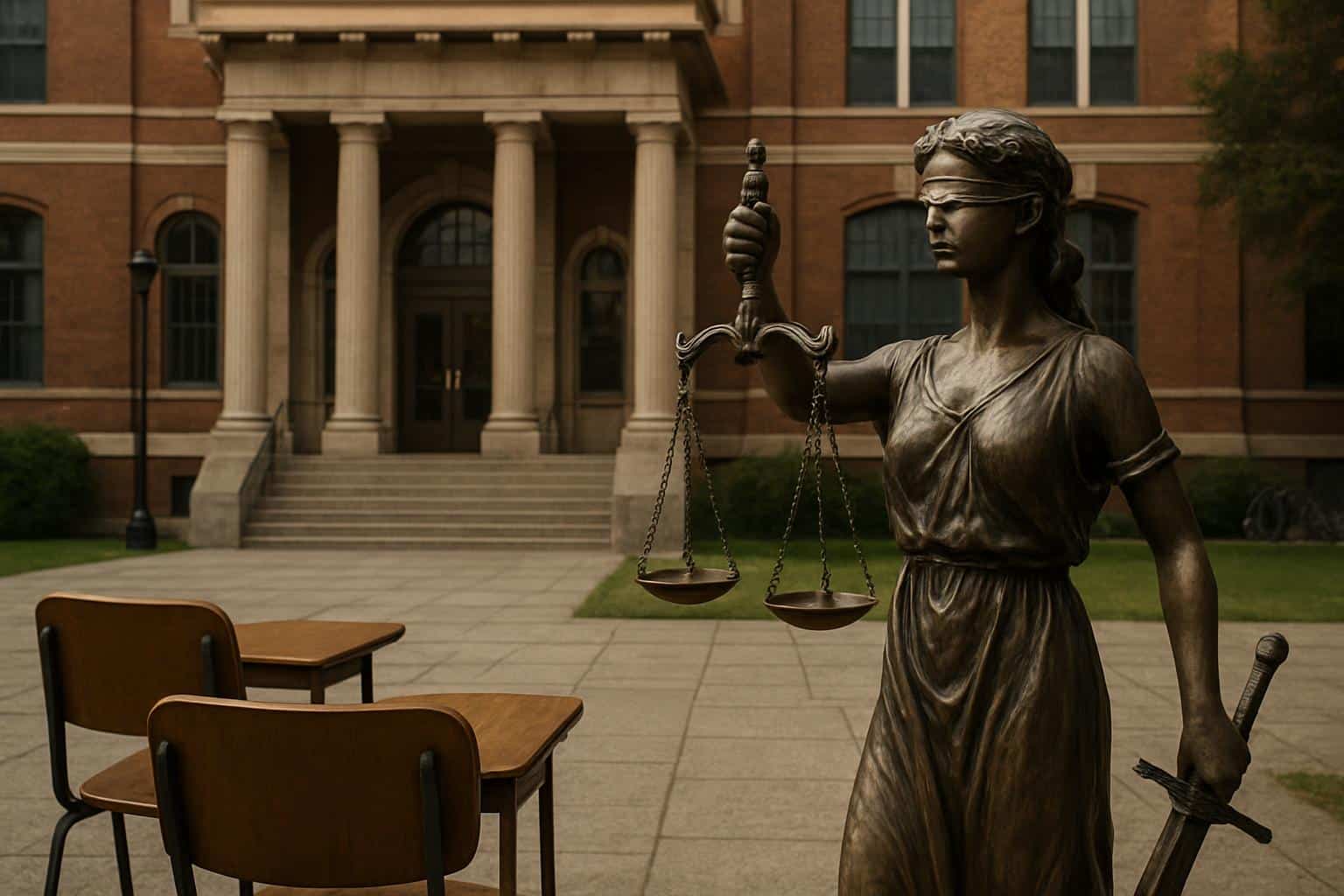(Opens Dec. 1 in Manhattan) Luca Guadagnino’s After the Hunt comes at us as a glossy campus drama that regards sexual politics as an abstract riddle and then dares its audience to take a side. Debuting to mixed reviews in Venice and unspooling stateside at a major fall festival, the movie currently sits in the high-forties on Rotten Tomatoes, an unusual meter for the filmmaker. But the chill critical divide tells you less about how it was made than about its daring to leave viewers in that cold, deeply contemporary gray area.
A Campus Drama About Power, Desire, and Control
Julia Roberts is Alma Olsson, a brilliant Yale philosophy professor edging toward tenure security. Her orbit features a cocksure colleague, Hank Gibson (Andrew Garfield), an anxious doctoral candidate supergenius Maggie (Ayo Edebiri) and Alma’s adoring husband, Frederik (Michael Stuhlbarg). Guadagnino sets their first exchanges at a posh faculty party, where admiration and envy and an erotic frisson are as free-flowing as the wine.

The following night, the movie’s main conflict surfaces: Maggie shows up at Alma’s house hysterical, claiming that after Hank walked her home he raped her. The act itself is never shown. As with Anatomy of a Fall or A Separation, the film holds back the “what happened” and plunges us into shifting narratives, institutional process and moral calculus among those most directly connected to the allegation. Nora Garrett’s script immediately sends ripples of impact — professional, legal-adjacent and deeply personal — rather than hanging on whodunit mechanics.
The academic backdrop matters. The characters — as patterned sex machines — wield language (about truth, consent, power and identity) as both argument and armor. The philosophy department is not just a backdrop; it’s a tension engine of the film, in which the instruments of argument can clarify an experience or suffocate it.
Performances That Complicate Allegiance
Roberts is gripping as a cerebral type whose attitude to emotion is that it’s a solvable problem. Alma’s performative serenity — razor-clean tailoring, curated taste, cool remove — comes apart as she weighs loyalty to a colleague against her duty to a student and the ghosts she has spent years filing away. Roberts allows micro-fissures first in posture and breath, then in bursts of heat that seem all the more frightening for being so few.
Garfield threads a tough needle: Hank’s charisma is real, and initially charismatic, before transmuting into quick ’n’ precocious silver defensiveness that keeps slipping out of our fingers. The movie’s stealth powerhouse, Edebiri works in quiet registers that accrue significance — note how Maggie’s voice, body language and eye contact mutate as she moves from worship to self-definition. Stuhlbarg lends Frederik a soulful bendiness — a man underestimated, observant and, when the movie requires it most, heartbreakingly candid.
Consent, Power, and the Language of Generations
After the Hunt is just as much about the language of harm as it is about what that harm actually looks like. The older academics decry what they call hypersensitivity; the younger cohort insists on specificity — about terms, boundaries, accountability. The movie contains that alchemy without making anyone into a straw man. There’s also a keen awareness of race and class: Maggie’s attempt to fit into a mainly white, moneyed world is built into her costume, blocking and the way conversations get superseded.
The stakes of the narrative mirror real-world data. According to the Association of American Universities’ 2019 campus climate survey, more than one in four undergraduate women experience nonconsensual sexual contact during college. At the same time, evolving Title IX rules from the U.S. Department of Education have left universities lurching to recalibrate investigative procedures and due-process protocols. The movie captures this atmosphere of scrutiny, fatigue and mistrust — how institutional process can be both necessary and not enough.

Crucially, Garrett is not here to litigate the case so much as she is to show us how people use ideas to survive it. Alma’s hard insistence upon rational triage comes across as a kind of strength — until it starts to feel like denial. Maggie’s insistence on naming discomfort is a lifeline. The way Hank can turn a phrase becomes something sour and self-protective. All believe that they are being fair; all, too, are guarding some version of themselves.
Guadagnino’s Visual Command and a Late Plot Wobble
Guadagnino’s command of space is superb. Rooms declare status; doorways are battle stations; rain, glass and mirrors function as ciphers of human qualities. The conversations have the choreography of seductions and cross-examinations. The filmmaking is plush without being fussy, with plenty of negative space for tension to accrue.
Where it stumbles is at the end.
The coda, in which a major plot development is revealed from a distance by witnesses and family but barely (and confusingly) addressed and played for bittersweet comic relief, simply doesn’t work. Following a bruising middle that shuns easy solutions, the last-mile lurch in the final stretches toward permission for a breezier wrap-up. The new approach doesn’t erase the complexity that comes before it, but it does threaten to sand down some of the rougher edges that the movie otherwise proudly displays. For viewers who prize tonal consistency that might feel like a rip-off; for others, the breeziness may be read as one more level of denial the characters have opted to don.
Where It Fits Into a Polarized Cultural Moment
It’s easy to take the polarized reception (mixed notices in Venice and a sub-50 score on Metacritic) as a judgment. It’s much better thought of as a barometer. After the Hunt takes us into disputed territory with star wattage and bite, too, and when it eschews tidy answers, we’re made to squirm in good ways. Roberts, Garfield, Edebiri and Stuhlbarg keep the film rooted by not allowing their characters to be reduced to a hashtag or a headline.
Messy, contemporary and argument-ready, this is a drama that cares about words — and then demonstrates why they’re never enough. That contradiction may frustrate some. It is also what lingers long past the credits of After the Hunt, like an uninvited guest at another fancy dinner — inviting precisely the debate that it depicts.

